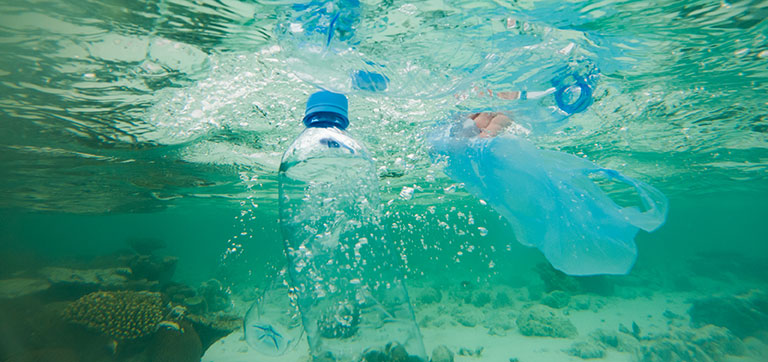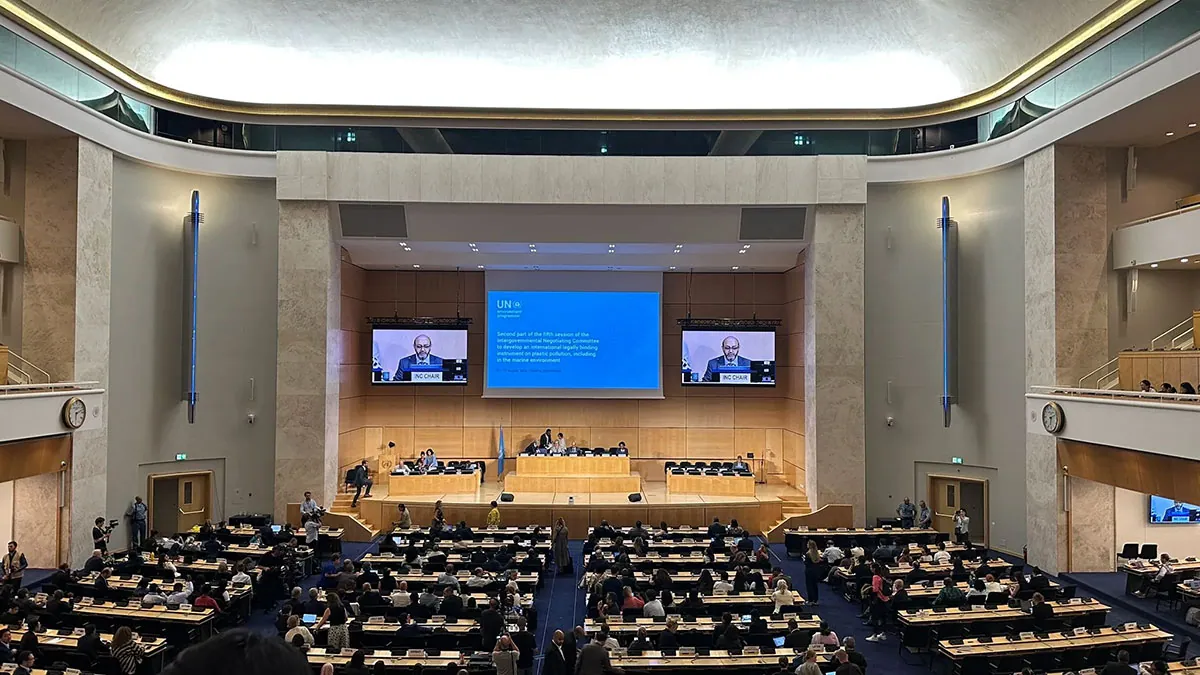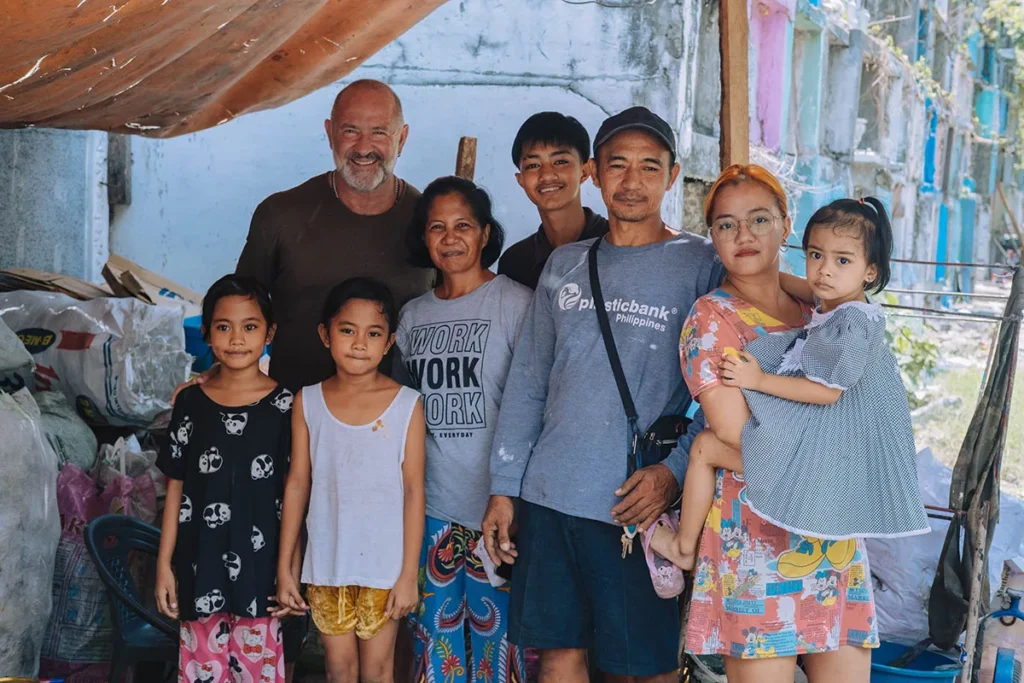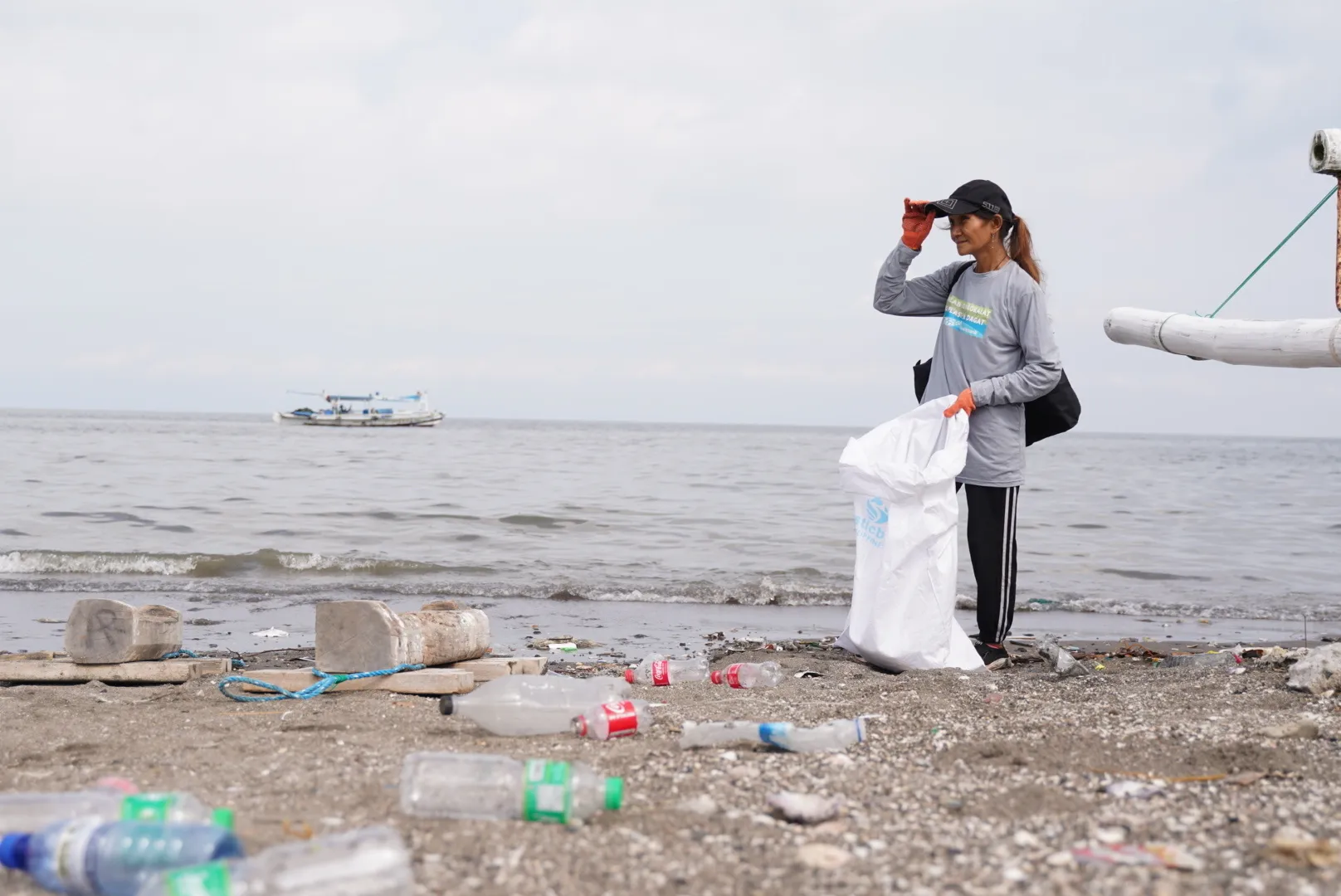 Plastic Pollution and Recycling
Plastic Pollution and Recycling
What happened in Geneva
From August 5 to 15, more than 2,600 participants—including over 1,400 delegates from 183 countries and nearly 1,000 observers—gathered in Geneva for INC-5.2, the latest push to finalize a global plastics treaty. Seventy ministers and vice-ministers joined in for the closing roundtables¹.
The meeting ended without agreement. Key ideas like binding production limits, phase-outs of harmful plastics, and financing for the Global South failed to reach consensus². Observers described how corporate interests and petrochemical industry lobbyists diluted the treaty text, prompting many countries to reject a weakened proposal³.
A coalition of over 100 countries advocated for production caps, but faced pushback from the US, India, Gulf states, and others who focused instead on waste management⁴. Some experts highlighted the broken consensus process as a root cause, calling for reforms such as allowing voting or creating parallel initiatives outside UN frameworks⁴.
Civil society and business groups sent mixed signals. Some expressed disappointment, while others saw progress in alignment around elements like design standards and Extended Producer Responsibility (EPR)⁵.

What should have happened
Our movement pierces through the paralysis, demanding action that puts the people and the planet first.
The process must serve people, not industries
Decision-making cannot remain paralyzed by consensus or corporate capture. We need transparent, inclusive paths where strong majorities can carry progress forward ⁴.
Binding production caps must be non-negotiable
The science is clear: recycling alone will not solve plastic pollution unless production is curtailed. Geneva highlighted the unacceptable divide between ambition and delay6.
Strong design and chemical standards are essential
The treaty must mandate non-toxic, safe, circular design—not leave this to voluntary agreements⁵.
Funds must flow where the crisis hits hardest
Communities in the Global South face plastic impacts daily. Geneva should have delivered financing mechanisms to support equitable implementation².
Lessons learnt
The global majority is still in the fight
While Geneva ended without a treaty, it reaffirmed that most countries want meaningful action, not hollow compromises¹.
The limitations of consensus are clear
When a few actors can block progress, parity becomes stagnation. It is time for new mechanisms or stronger UN processes⁴.
Momentum must shift from text to impact
Treaty talks stalled, but they sparked side events, public pressure, and regional alignment. That energy must now fuel action on the ground⁵.

Accelerating the movement while talks stall
Communities at Plastic Bank are not waiting for political breakthroughs. Every kilogram of plastic collected creates income, supports families, and strengthens local circular economies.
Our experience shows a treaty’s ambition must be rooted in proven models. What Geneva moved too slowly to define, neighbourhoods worldwide are already building.
A treaty may still come, but real change starts here and now. Governments, businesses, communities, and individuals have roles to play beyond Geneva:
- Governments can legislate production limits and enforce design standards
- Brands can create impact by integrating recycled plastic feedstock and prioritizing circular packaging
- Investors can fund proven impact models that lift communities
- Citizens can support local collection systems and demand systemic change
Join our movement and turn talks into practical solutions. Every collection counts because dignity, livelihoods, and a healthier planet cannot wait.
Sources:
- “INC-5.2: Road to Geneva.” Geneva Environment Network, 15 Aug. 2025, www.genevaenvironmentnetwork.org/resources/updates/road-to-geneva-plastic-pollution-inc-5-2
- “Inside INC-5.” International Institute for Sustainable Development (IISD), Aug. 2025, https://www.iisd.org/inside-inc-5
- “The Global Plastics Treaty Talks Failed, Again: Industry Reacts.” Vogue Business, 21 Aug. 2025, https://www.voguebusiness.com/story/sustainability/the-global-plastics-treaty-talks-failed-again-industry-reacts
- “Analysis: What Can Break the Global Deadlock over Plastics?” Reuters, 20 Aug. 2025, https://www.reuters.com/sustainability/climate-energy/analysis-what-can-break-global-deadlock-over-plastics-2025-08-20/
- “Statement on the INC-5.2 Outcome.” Business Coalition for a Global Plastics Treaty, 16 Aug. 2025, www.businessforplasticstreaty.org/latest/our-statement-on-the-inc-5-2-outcome
- “INC-5.2 Explainer.” WWF Latin America, Aug. 2025, wwflac.awsassets.panda.org/downloads/inc-5-2-explainer.pdf






